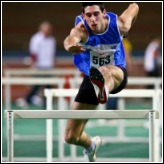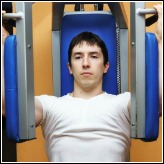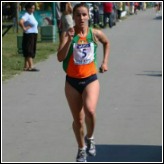How to Build
Strength That Gets Results
All successful athletes need to know how to build strength and power. Depending on their sport or event, different types of strengths are required by different types of athletes. Strength is developed when a combination of neural and hypertrophic factors are improved.
By knowing the type of strength your sport/event requires and applying the correct training methods, you can build strength that improves your performance.
Knowing how to build strength which is then converted to power is an important quality in all track and field disciplines. Height and technique aside, the most powerful shot putter will launch the 7.26kg iron ball further than anyone else in the competition. The middle distance runner who can apply the most force to the ground in each stride will use energy more efficiently and out run their competitor to the finish line.
What is stated is true but, what is also true is that the way in which you build strength for each of these athletes, is different from the other.
Put simply, strength is built by stressing/training certain muscle fibers. As a response to that stress you become stronger by taking advantage of two adaptations of the body:
- The nervous system improves
- Individual muscle fibers size is increased
How to build strength using neural factors
Muscle contractions are controlled by nerve impulses which activates muscle fibers. Not all fibers will be stimulated for a given action. However, with training the body learns to activate more and more muscle fibers. For example, if a piece of string represents one unit of strength, then 10 pieces of string will be ten times as strong. Ergo, your muscles contracts with more force.
You can also demonstrate an increase in strength by coordinating or synchronizing muscle groups to work together to produce more force in a given action. So for example, in a jumping movement, the height or distance traveled by an athlete is achieved by them maximizing the triple extensions of the hip, knee and ankle joints. If only two of those joints are used in an optimum way, less force is exerted into the ground with the results being less height or distance gained.
How to build strength using hypertrophic factors
The most visible signs you can have that you are getting stronger is an increase of your lean body mass (called hypertrophy). This is achieved when the number or size of a muscle filament is increased. When a muscle is worked hard, protein within it structure is broken down (degraded).
During the recovery after training, and
with the correct diet, hormone such as testosterone kicks in and
rebuilds/repair the muscle. The body, thinking that this might be a repeated
attack, over compensate and rebuild the muscle better i.e. stronger than before.
There are discussions going around the strength research area which suggest that
muscle fibers are able to split, a process called hyperplasia. If
this is proven to be possible in humans, then as a consequence, having more fibers
in a muscle will potentially make it bigger, stronger and more powerful. Hypertrophy is another way the body build strength
That is how you build strength, but what do you need to do to get the best results?
Types of athletes and their training needs
As explained earlier endurance athletes should build strength differently from strength and power based athletes. Their needs are different and therefore the training methods they use to build strength will be different also. The table below is an example of how different needs are assessed:
| Endurance | Muscular Endurance, Power Endurance |
| Power(sprinter/jumpers) | Maximum Strength, Power, Reactive Strength Power Endurance |
| Power (Throwers) | Maximum Strength, Power, Reactive Strength |
Qualities of strength and methods used to achieve them
So, now you know how to build strength by working in the correct area according to the type of athlete you are or the sports you participate in. The next important question is what are the training methods that best develop these various qualities? Lifting weights any old how just won't do it. The type of training you do must be specific to get the results you want.
| Muscular Endurance | Circuit Training Method (body weight) Circuit Training (with weights, 30-50% of 1RM) |
| Power Endurance | Dynamic Method (training with loads 50-70% of 1RM, high repetitions |
| Maximum Strength |
|
| Power | Dynamic Method (training with loads 50-70% of 1RM, low repetitions |
| Reactive Strength | Plyometric/Ballistic Method |
Knowing how to build strength requires that you simply know what you want and know how to get it. I hope this article has help you in this regard.
Sign Up For The Latest Track And Field News And Improve Your Athletic Performance!







